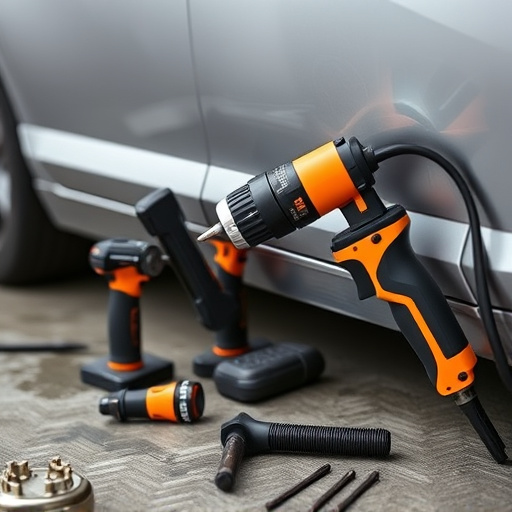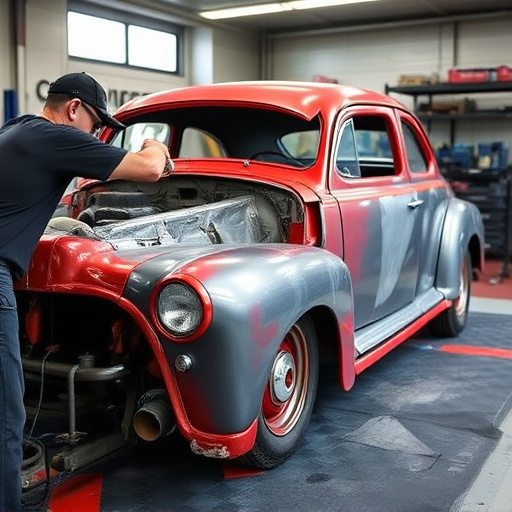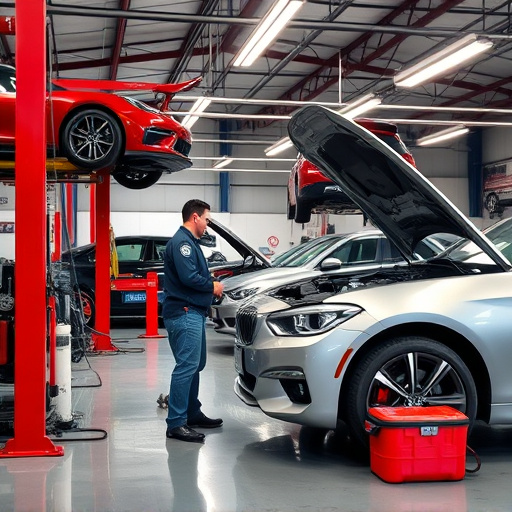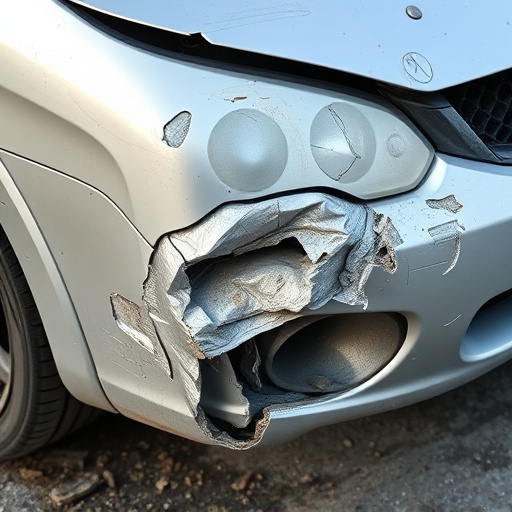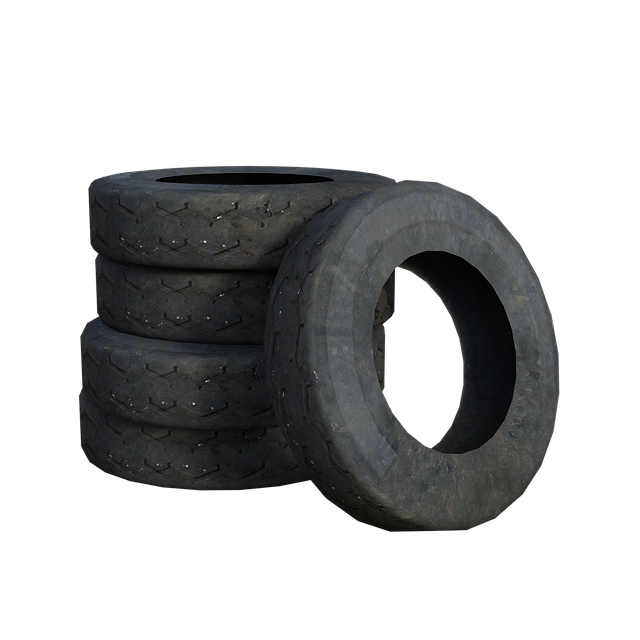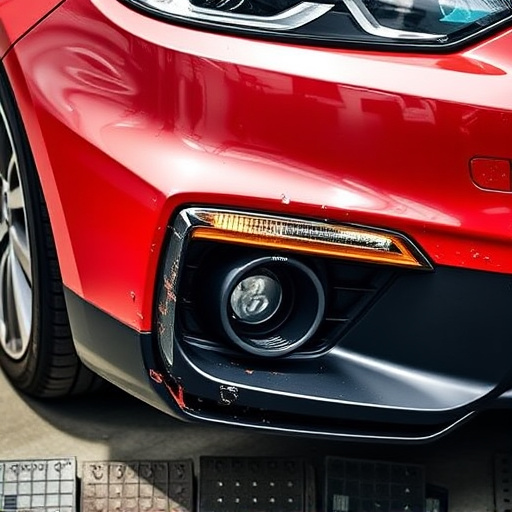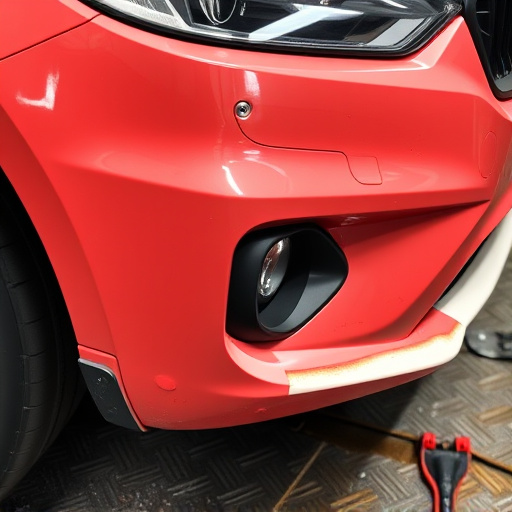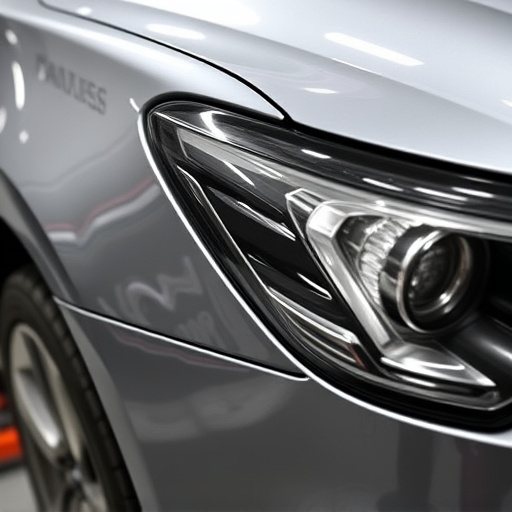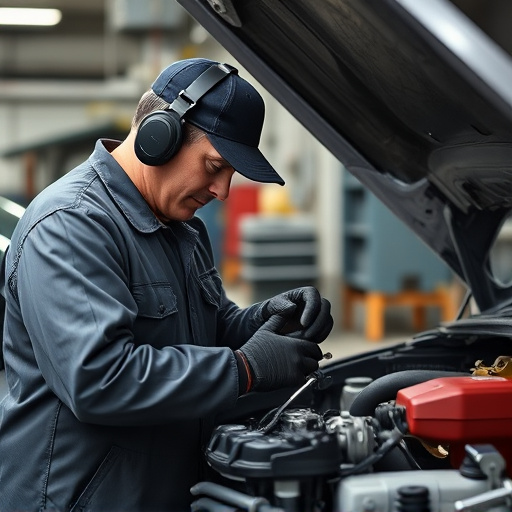Direct Repair Programs (DRPs) are strategic partnerships between insurers and pre-screened automotive body shops designed to streamline vehicle repair processes, enhance customer satisfaction, and reduce costs. Insurers select these shops based on technical expertise, safety compliance, pricing transparency, and customer reviews, ensuring professional repairs using OEM parts at guaranteed lower prices than out-of-network services. This approach simplifies claims processing, providing peace of mind for policyholders and mitigating financial burdens for both insurers and policyholders, benefiting from faster repairs, high-quality work meeting manufacturer standards, transparent communication, and built trust.
Insurers are transforming auto repairs through Direct Repair Programs (DRPs), offering policyholders streamlined, cost-effective options. This article delves into the strategic selection process of shops for DRPs, exploring crucial criteria like expertise, facilities, pricing transparency, and customer service. We uncover why partnering with reputable repair shops not only enhances customer satisfaction but also drives mutual success in the competitive automotive industry. Understanding these dynamics is essential for insurers aiming to implement or optimize their DRP strategies.
- Understanding Direct Repair Programs: A Key Initiative for Insurers
- Selection Criteria: What Makes a Shop Suitable for DRP?
- The Impact and Benefits of Partnering with Reputable Repair Shops
Understanding Direct Repair Programs: A Key Initiative for Insurers

Direct Repair Programs (DRPs) are a strategic initiative for insurers, aiming to streamline vehicle repair processes and enhance customer satisfaction. By partnering with pre-screened and approved automotive body shops, DRPs offer a convenient and cost-effective solution for policyholders involved in accidents. These programs ensure that repairs are conducted efficiently, using original equipment manufacturer (OEM) parts, and at a guaranteed, often lower, price compared to out-of-network auto repair services.
Insurers carefully select these shops based on several factors including their technical expertise, compliance with safety standards, pricing transparency, and customer reviews. The goal is to provide policyholders with peace of mind, knowing that their vehicle repairs will be handled swiftly and professionally by trusted automotive body shops, ultimately simplifying the claims process and reducing the financial burden for both the insurer and the policyholder.
Selection Criteria: What Makes a Shop Suitable for DRP?

When insurers consider which shops to include in their direct repair programs (DRP), they look for several key attributes that ensure a high level of service and customer satisfaction. A suitable collision repair shop for a DRP must possess modern facilities equipped with the latest technology, demonstrating their ability to handle complex repairs accurately and efficiently. This includes specialized tools and training for technicians to work on various vehicle makes and models.
Additionally, the shop’s reputation for quality and consistency in automotive repair is paramount. Insurers assess past performance, customer reviews, and certifications to gauge their reliability. A good track record of adhering to industry standards and safety protocols is essential, as well as a commitment to using genuine parts and following manufacturer guidelines during the vehicle repair process.
The Impact and Benefits of Partnering with Reputable Repair Shops

Partnering with reputable collision repair shops brings numerous advantages for insurers participating in direct repair programs. These partnerships contribute significantly to faster and more efficient claims processing, ensuring that vehicle owners receive timely repairs after accidents. Reputable repair shops are equipped with skilled technicians who adhere to industry standards and use high-quality materials, guaranteeing excellent work that meets or exceeds manufacturer specifications. This commitment to quality not only enhances customer satisfaction but also reduces the likelihood of future issues arising from subpar repairs.
Moreover, collaborating with trusted collision repair shops fosters a seamless experience for policyholders, simplifying the claims process. Insurers can rely on these shops’ expertise and efficient workflows, enabling them to offer faster turnaround times and more transparent communication. Such collaborations ultimately strengthen the relationship between insurers and their customers, fostering trust and loyalty in the event of future claims or repairs, whether it’s for a car scratch repair or more extensive collision repair services.
Insurers carefully evaluate repair shops using specific criteria when selecting partners for their direct repair programs (DRPs). By choosing reputable shops, insurers enhance customer satisfaction and claim processing efficiency. The benefits of DRPs extend to both insurers and policyholders, fostering a seamless and cost-effective claims resolution process. This strategic partnership is a win-win, ensuring quality repairs and streamlined services within the insurance ecosystem.
